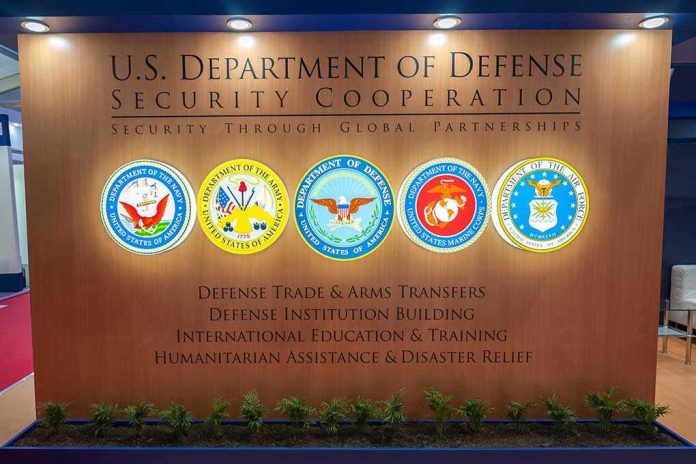
Chinese nationals working on sensitive U.S. defense data systems have sparked national security concerns, igniting a debate on government oversight and Big Tech transparency.
Story Overview
- The Pentagon has halted a Microsoft program that allowed Chinese nationals to work on U.S. Department of Defense (DoD) data systems.
- ProPublica’s investigation revealed security oversight gaps and potential risks of foreign espionage.
- Defense Secretary Pete Hegseth announced an audit and policy changes to address these concerns.
- Microsoft has ceased using Chinese engineers for DoD contracts, raising questions about past government oversight.
Pentagon Halts Chinese Nationals in Defense Work
The Pentagon has put a stop to a controversial Microsoft program that involved Chinese nationals working on U.S. Department of Defense (DoD) data storage systems. This decision follows a ProPublica investigation that exposed security lapses and potential risks of espionage. The program, known as “Digital Escorts,” permitted foreign engineers, including those in China, to work on these sensitive systems under U.S. contractor supervision.
Concerns about national security have been paramount, especially given the tense U.S.-China relations and the growing reliance of the DoD on commercial cloud providers like Microsoft. The use of foreign nationals raised alarms about inadequate oversight and potential data compromise, prompting a Pentagon audit and policy overhaul led by Defense Secretary Pete Hegseth.
ProPublica’s Revelations and Microsoft’s Response
ProPublica’s investigation uncovered that Microsoft’s security plan submitted to the DoD omitted crucial information about China-based personnel. This discrepancy raised questions about Microsoft’s transparency and compliance with federal security protocols. In response to the findings, Microsoft stated its commitment to providing secure services to the U.S. government and confirmed it has stopped using Chinese engineers for DoD contracts.
The investigation highlights a decade-long practice where Chinese nationals were involved in managing sensitive U.S. defense data, pointing to potential negligence or complicity by both Microsoft and U.S. government officials. The revelations have led to increased scrutiny of Microsoft’s role and the broader implications for national security and contractor oversight.
Impact and Future Implications
The immediate impact of this exposure includes heightened scrutiny of Microsoft and potential disruptions to DoD IT operations as personnel are replaced. In the long term, the incident may lead to stricter enforcement of citizenship requirements for those handling sensitive data and changes to federal procurement and security protocols. This situation has also prompted discussions about the need for greater transparency and accountability in government contracts involving foreign nationals.
The broader industry may see a ripple effect, with other major cloud providers facing similar audits and restrictions. These developments could accelerate moves towards “onshoring” sensitive IT work and potentially prompt legislative changes regarding foreign nationals in critical infrastructure roles.
Sources:
“`









